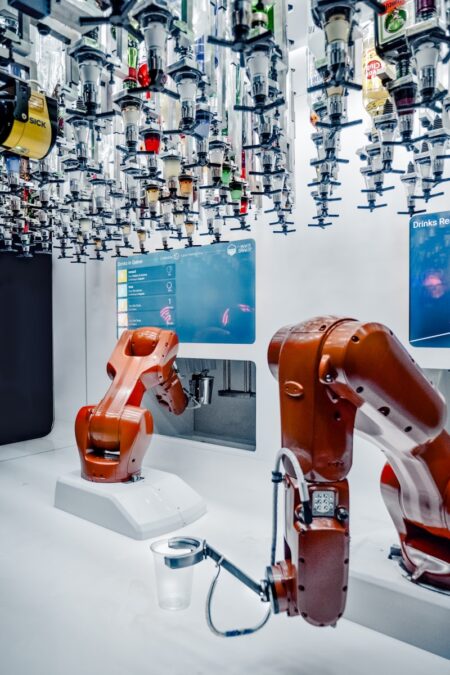Innovative Traffic Management Solutions in Dubai Using AI and ML
AI and Machine Learning for Traffic Prediction in Dubai are revolutionizing how the city addresses congestion and mobility challenges, enhancing road safety and commuter experiences through high-tech solutions. These technologies are pivotal in transforming Dubai into a smarter, more efficient city by predicting traffic flows and optimizing routes.
Deploying AI to Enhance Commuter Experience
Dubai has embraced Artificial Intelligence (AI) to improve traffic management across the bustling city. Utilizing complex algorithms, AI analyzes vast amounts of data to predict traffic hotspots and suggest alternative routes to travelers in real-time. This proactive approach reduces traffic congestion and enables smoother commutes, significantly enhancing the daily transportation experience for residents and tourists alike. By integrating AI into their traffic systems, Dubai authorities can dynamically manage traffic conditions, adjusting signals and dispatching information to drivers through mobile apps and in-car systems. This not only minimizes delays but also helps in reducing the carbon footprint by curtailing idle times at red lights and reducing unnecessary fuel consumption.
Machine Learning Algorithms to Predict Traffic Flow
Machine learning models are at the heart of Dubai’s traffic prediction systems. These models are trained on historical traffic data and real-time input from a network of sensors across the city. They are capable of forecasting future traffic patterns with remarkable accuracy, allowing city planners to implement preemptive measures to avoid congestion. Moreover, these algorithms continuously learn and improve, adapting to changes in traffic behavior over time without human intervention. The deployment of machine learning enhances the responsiveness of Dubai’s traffic management system, ensuring that the city can maintain optimal traffic conditions even as it grows and traffic patterns evolve.
Integrating Blockchain for Secure Traffic Data Management
Alongside AI and machine learning, Dubai is pioneering the use of Blockchain technology to secure the vast amounts of data generated by its smart traffic systems. By ensuring that each piece of data is encrypted and stored on a blockchain, Dubai enhances the security and transparency of its traffic management operations. This method prevents tampering and ensures that the data used for traffic prediction and management is accurate and reliable. Blockchain’s role in Dubai’s traffic systems exemplifies the city’s commitment to using cutting-edge technology to enhance urban life, offering a model for other global cities aiming to upgrade their infrastructure.
The Future of Urban Mobility in Dubai
The integration of AI and machine learning into traffic management is just the beginning of Dubai’s journey towards becoming a fully integrated smart city. Future initiatives include expanding AI applications to public transportation, pedestrian safety, and emergency vehicle routing. These advancements will lead to even greater efficiency and safety for all road users, solidifying Dubai’s position as a leader in smart city technologies. The commitment to continuous improvement in traffic management systems using AI and machine learning showcases Dubai’s visionary approach to urban planning and management.
Enhancing Traffic Safety and Efficiency with AI
Safety is a paramount concern in traffic management, and AI contributes significantly to making Dubai’s roads safer. Predictive analytics help in anticipating potential accident hotspots and altering traffic flow to prevent accidents before they happen. This proactive safety management helps in significantly reducing the occurrence of traffic-related incidents and enhances the overall safety of the city’s bustling roads. Moreover, AI-enabled traffic management systems ensure that traffic laws are followed more strictly, contributing to a disciplined and safe driving environment.
AI in Supporting Sustainable Urban Development
Dubai’s use of AI and machine learning in traffic prediction is also a step towards sustainable urban development. By optimizing traffic flows and reducing wait times, these technologies help in lowering vehicle emissions and supporting the city’s environmental goals. The efficient traffic management facilitated by AI and machine learning not only improves air quality but also supports Dubai’s broader sustainability initiatives, which aim to reduce the city’s carbon footprint and promote environmental consciousness among its residents.
Building a Connected Transportation Network
Dubai’s vision for a connected transportation network hinges on the seamless integration of AI and machine learning technologies across all modes of transport. This integration facilitates a unified traffic management platform that not only forecasts traffic but also coordinates signals and system responses across the city. Whether it’s rerouting traffic around a parade route or coordinating rush hour traffic, AI systems provide the agility and intelligence needed to keep the city moving efficiently. These technologies are essential in creating a dynamic network that can adapt to real-time conditions and anticipate future issues, thereby ensuring continuous flow and reduced traffic congestions.
Role of AI in Enhancing Public Transport Systems
AI’s impact extends beyond roads and personal vehicles into Dubai’s public transport systems. By analyzing usage patterns and passenger data, AI helps optimize bus routes and schedules, reducing wait times and improving passenger distribution across the network. This targeted data analysis ensures that resources are utilized efficiently, maximizing coverage and service quality for all public transport users. Furthermore, AI technologies are being explored to enhance security measures on public transport by analyzing CCTV footage in real-time to detect unusual behaviors or potential security threats, thereby ensuring the safety and security of passengers.
Advanced Analytics for Emergency Management
In critical situations, the speed at which emergency services respond can mean the difference between life and death. AI and machine learning significantly bolster Dubai’s emergency management capabilities by providing predictive insights that help in dispatching emergency services more effectively. Traffic prediction AI tools anticipate areas where accidents are more likely to occur and plan the quickest routes for emergency vehicles to reach these spots. Additionally, during an emergency, AI systems can automatically adjust traffic lights across the city to create clear paths for ambulances and fire trucks, drastically reducing response times and enhancing the overall efficiency of emergency responses.
#Dubai, #ArtificialIntelligence, #MachineLearning, #SmartCities, #TrafficManagement, #SustainableCities, #UrbanPlanning, #TechInnovation









